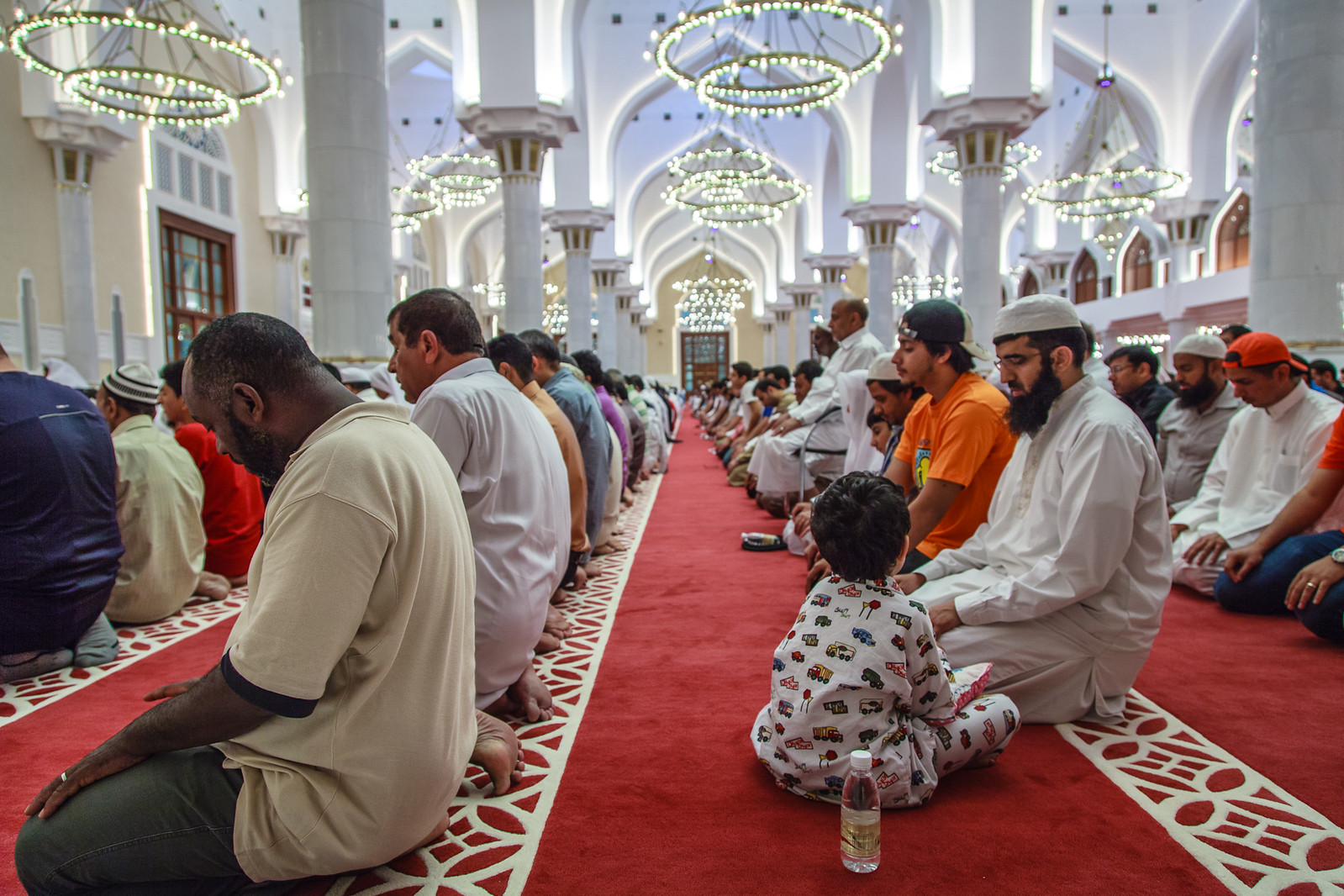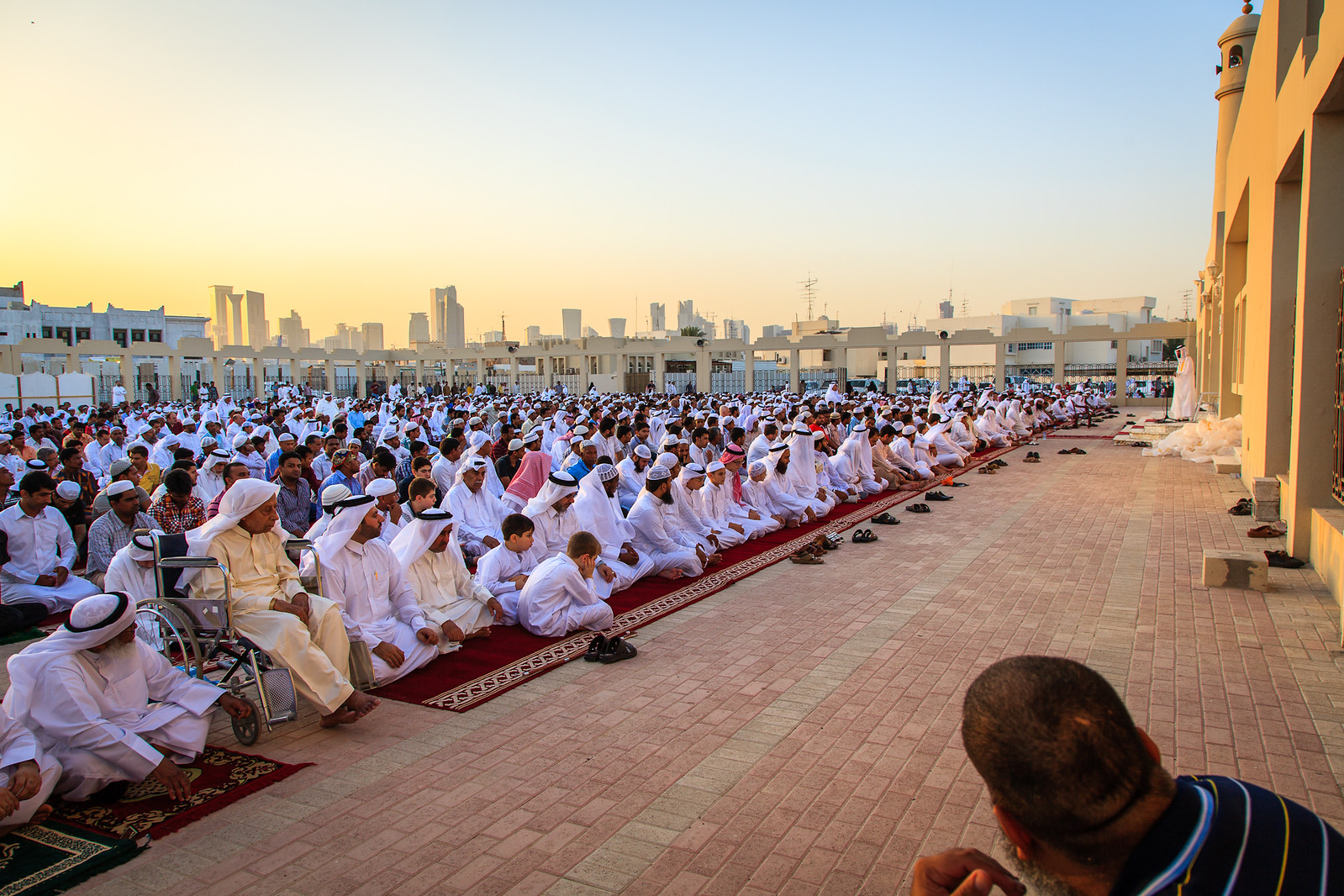
15 facts about the holy month of Ramadan
Ramadan is right around the corner! Qatar Living is giving you a more in-depth look at Ramadan with 15 essential facts you may not know. We hope you enjoy it, and better understand some of the details of what's happening in the country!
1. Ramadan is the ninth month in the Islamic lunar calendar. The current Islamic year is 1437 AH; the first year of which began from the year that the Prophet Muhammed (pbuh) emigrated from Mecca to Medina.
2. Ramadan is the month when Muslims around the world fast for 29 or 30 days depending on when the moon is sighted. The announcement of Ramadan is an exciting time for Muslims as they see Ramadan as a month of blessings and a time for good deeds and actions.
3. In the Middle East you will hear the greeting 'Ramadan Kareem' which means a generous Ramadan. But you may also hear people wishing each other a blessed Ramadan with the words 'Ramadan Mubarak'.
4. In this Holy Month Muslims refrain from eating and drinking from sunrise to sunset, in Arabic fasting is called "Sawm". In addition to the usual night prayer, special evening prayers known as Taraweeh are also held.
5. Suhoor is the meal taken before sunrise, when Muslims usually make their intention to fast the following day. Medical professionals advise fasting Muslims to avoid sugary and fatty foods at this time; instead they should eat slow-energy releasing foods such as porridge and nuts. It is also important to make sure to drink enough water to keep hydrated for the heat of Doha.
6. Muslims open their fast at sunset with the Iftar meal. It is generally recommended that Muslims break their fast as the Prophet Muhammed (pbuh) would do by eating three dates - the natural sugars from the dates helps to provide energy. In the Middle East the actual Iftar meal is taken later in the day after evening prayers so as to avoid lethargy and sleepiness from overloading the body straightaway with lots of food.
7. Historically many Muslim nations would fire a cannon to alert residents that it was time to break the fast. This is still carried out in Qatar with a daily cannon being fired in the grounds of Doha's state mosque, the Sheikh Muhammad Ibn Abdul Wahhab Mosque in Al Jebailat. Many families bring their children and make an event of it – they bring light snacks and water to open their fast.
8. Ramadan is a big deal in the Middle East, and there will be disruption to the public services and shops for the entire month. Always check the opening times for a venue before you head out. This is especially important for dining places as many places close for the month, so don't assume that your favourite restaurant will be open.
9. There are lots of dining options available in the evening when the fasting day has ended. For many expats it is exciting to visit some of the more elaborate Iftar or Suhoor buffets and the highly-decorated Ramadan tents at the local hotels. If you want to find out about the Ramadan offerings from local dining places and restaurants check out Qatar Eating’s Guide.
If you are invited to a friend or colleague's home for an Iftar meal you should try to go as this is the communitarian heart of the Holy Month. (It is polite to bring a small gift of dates or chocolates). Be sure to ask your host any questions you have about Ramadan for a first-hand experience of the month of fasting. You can also contact Fanar, Qatar's Islamic Cultural Center, for more information about Ramadan or Islam generally.
10. Keep an eye out for family-friendly events in your community and in the Malls, particularly around the 14th day of Ramadan. On the 14th night Qatari children take part in the tradition of Garangao by dressing up in traditional clothing and going out into the local neighbourhood to sing the Garangao song and collect sweets and nuts from their neighbours. Check places like Katara and the Malls for their Garangao events. There will also be general Ramadan events this month at Katara and the Aspire Zone.
11. Ramadan is not just fasting – Muslims fast to understand and gain a more spiritual connection to their faith. Many Muslims concentrate on making their faith a priority over worldly distractions. Families also spend more time together and may make Ramadan goals to achieve such as Quran memorisation.
12. In the month of Ramadan people find it easier to re-connect to the importance of family and community, with many Muslims giving food to their neighbours at Iftar time in sharing the joy of Ramadan. Charity takes on even more importance; government organisations and local businesses arrange Iftar meals and Iftar tents in needy communities for anyone, whether they were fasting or not. Individuals also get involved and many Muslims also give monetary donations to charities as part of their Zaakat obligations
13. Anyone can get involved, whether you are fasting or not, in the month of Ramadan. You can encourage your children to make Ramadan Kareem cards for their friends or make Ramadan gift baskets for the neighbours. As a family you can work together to make up Iftar packs of water, dates, nuts and sweets to hand out to those in need in the local community.
14. If you are not fasting this month, non-Muslim and Muslims alike, you should be aware that in Qatar you cannot eat, drink, smoke or chew gum in public. You should be careful at your workplace too and make sure you know what the workplace policy is regarding food and drink. You should also be careful about how you dress and avoid tight-fitting clothes or exposing your legs and shoulders. Everyone should be careful on the roads, especially around the time of sunset and late evening as many people will be heading to prayers or iftar meals.
15. After the month of Ramadan ends Muslims celebrate with Eid al-Fitr festival. They attend special Eid prayers at their local mosque and visit friends and family, sharing celebratory meals. Gifts of money or toys are also given to younger members of the family. Most importantly it is a time of celebration shared by Muslims all over the world!
Qatar Living is looking forward to a month of closer communitarian values and generous actions from fellow citizens. What are you looking forward to in the coming month?
Photo credits (except title pic): Omar Chartiwala from QL Flickr group

















This is a beautiful and quite informative post. Thanks!
Can't wait for the special month to arrive. The countdown begins
Has anyone any links as to the significance of the time period is and the reason for the sawm?
Excuse the ignorance but as a Christian in a Muslim country I love all the preparation which is going into this. The lanterns etc I see all around us now. I don't understand the significance of it all but would very much like to.
Ramadan Mubarak to all.
QL Team, Thanks for the correction
Nidae, Thanks for the correction .........
Hello Muad ........
Dear Members.
Assalamo alaikum.
The current Islamic year is 1437 AH not 1436.
JazakAllah khair
Yasir
Super facts ....... Thanks for sharing .... Be happy in this holy month ... Ramadan joys to all